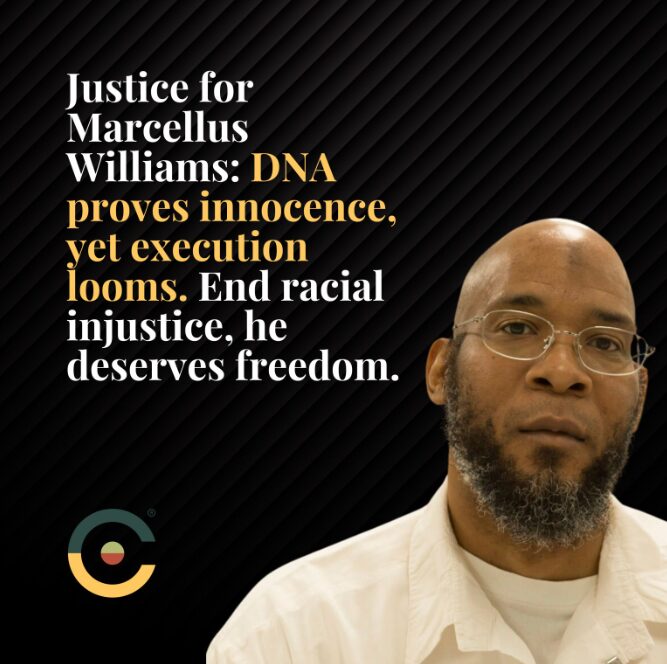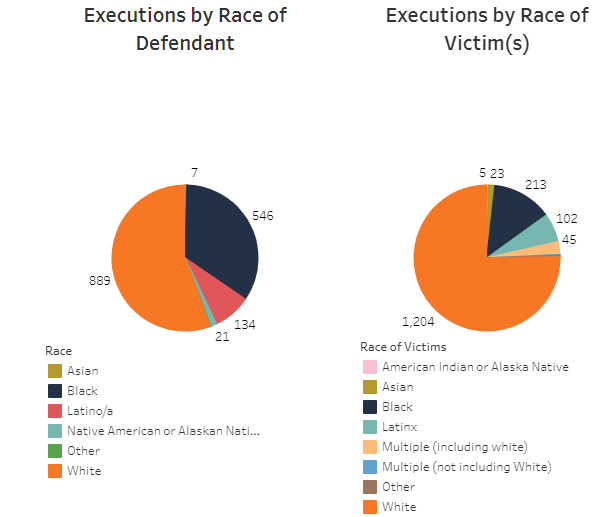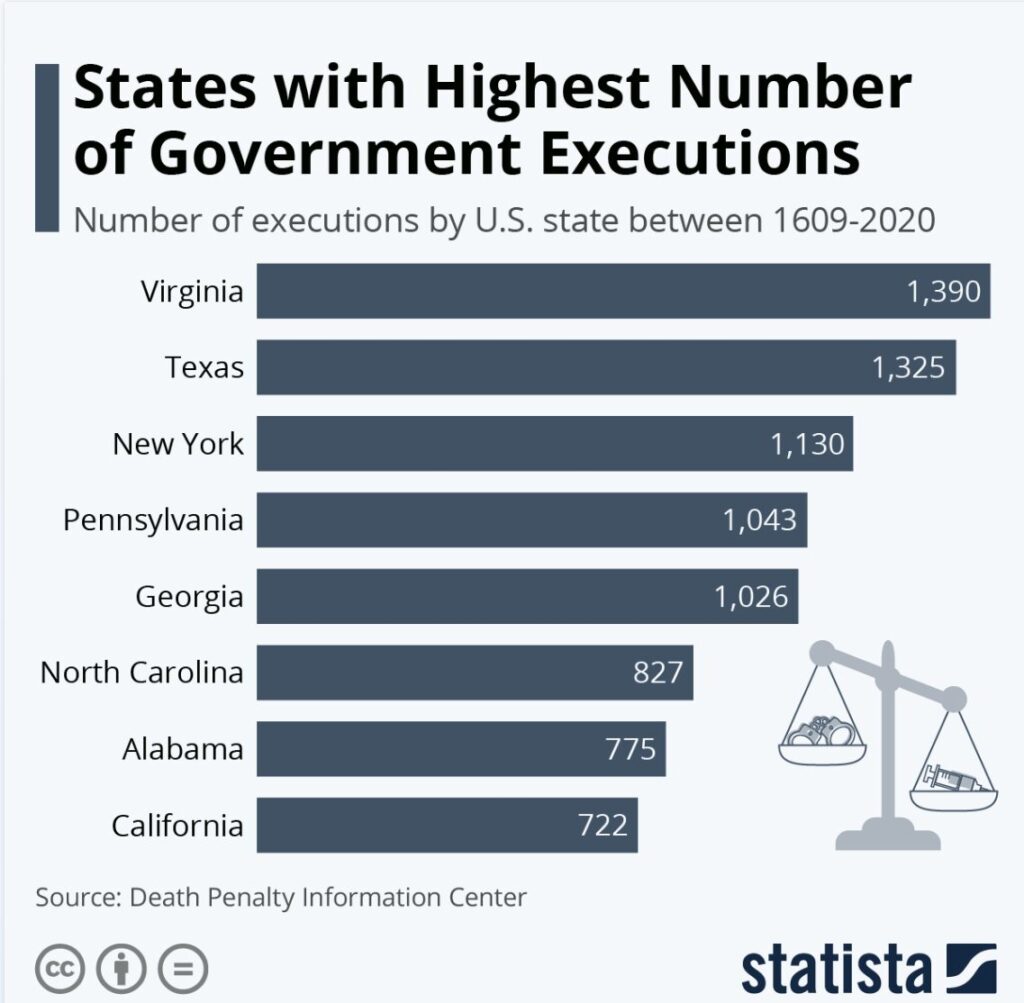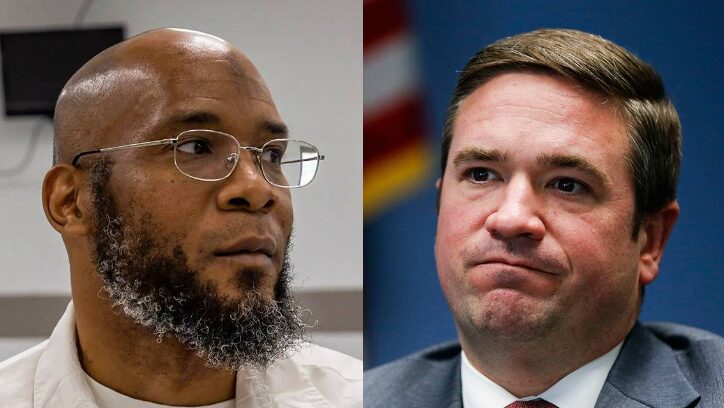
The dynamics between the United States and the death penalty have always been complicated. The scales are constantly swaying back and forth between justice and mass incarceration, with its destiny always lying in the hands of democracy. Just a few weeks ago, Marcellus Williams was executed in Missouri, despite several efforts to overturn the execution with the admission of evidence that supported his alleged innocence. The case went viral, unfortunately too late, but along the way, it brought widespread attention to the intersection of politics and punishment within the American justice system, highlighting the importance of having a functional government that can unbiasedly discern between just consequence and excessive force. Regardless of how you feel about the death penalty, it exists, and the reality is that we “One nation, under God” are always walking the judicial tightrope between rehabilitation and elimination.
Williams was found guilty in 2001 of killing Felicia Gayle, a social worker and former newspaper writer, who was discovered fatally stabbed at her house in 1998. Prosecutors testified during Williams’ trial that on August 11, 1998, he broke into her home, saw the shower running, grabbed a big butcher knife, and stabbed Gayle forty-three times before stealing her handbag and husband’s laptop. Prosecutors said that Williams also allegedly wore a jacket that day to cover up blood on his shirt. According to the authorities, when his girlfriend discovered the stolen laptop and purse in his car, she wondered why he was wearing a jacket on such a warm afternoon. A day or two later, Williams sold the laptop. Another key witness in the prosecution case was Henry Cole, who was incarcerated with Williams in 1999. Cole provided testimony asserting that Williams had privately confessed and admitted to the murder of Felicia Gayle.
But the defense was already busy building a case on their own that wasn’t so much centered around innocence as much as it was incompetence. Williams’ attorneys contended that the DNA evidence was doubtful because there was no forensic evidence linking him to the crime scene and because the murder weapon had been handled improperly. They argued that there was also other DNA evidence that did not match Williams’s, including hair and a bloody shoeprint discovered at the crime scene. Following the initial crime lab tests, results showed that the knife’s DNA belonged to prosecutors’ office employees who mishandled it by not wearing gloves, making it difficult for prosecutors to lean on DNA evidence as a means of conviction.
Many questions were beginning to surround the validity of the prosecution’s two main witnesses, the girlfriend, and Henry Cole. The Associated Press said that Williams’s defense claimed that Henry Cole and the girlfriend had criminal histories and were vying for a $10,000 bounty. And although Williams did sell a laptop that was taken from Gayle’s house, St. Louis County Prosecutor Wesley Bell claimed there was proof he had gotten the device from his girlfriend. Bell also noted that Prosecutor Keith Larner claimed to have disqualified a prospective Black juror, stating, “They looked like brothers.” “Familial brothers, I don’t mean Black people,” Bell argued that Larner had wrongfully excluded Black applicants from the jury, leaving the jury unfairly composed of one Black member and eleven White members.

Unfortunately, in the years that followed, Cole and William’s former girlfriend both passed away. Williams was eventually charged with the murder of Felicia Gayle and was sentenced to the death penalty. For many years, Williams insisted on his innocence. He was saved from execution in 2015 and 2017, but even with botched DNA and revelations of prosecutorial misconduct, it did not lead to the reversal of his conviction, or his sentence.
The attorneys and the prosecutor’s office came to an agreement wherein Williams would receive a life sentence without the possibility of parole in exchange for a fresh no-contest plea to first-degree murder, as there was no DNA evidence linking him to any other suspects. Although a no-contest plea is not an admission of guilt, it is nevertheless regarded as such for sentence purposes. Both Gayle’s family and Judge Bruce Hilton supported the agreement that was reached. But Republican Attorney General Andrew Bailey filed an appeal, which prompted the state Supreme Court to halt the deal and mandate that Hilton hold an evidentiary hearing.
“If I’m representing some white person who kills a Black person, it’s relatively easy to get them off,” said human rights attorney and director of the UK charity 3DC Clive Stafford Smith. Smith who has represented numerous death row clients, continued, “But if it’s a Black person who kills a white person, it is vastly harder. And that’s totally racism. And the other element of it with Marcellus, of course, was that the prosecutor got rid of the Blacks from the jury. So, you have this white jury judging a Black man.”
Hilton decided on September 12 that the death penalty and the conviction for first-degree murder would stand as all of Williams’s objections had already been rejected. On the following day, the Texas Supreme Court affirmed this ruling. Williams asked for mercy, but Republican governor Michael Parson denied him. With no tangible evidence to prove probable cause, the principal basis for Williams’s conviction was the testimony of two late witnesses who were against him.
According to Karen Pojmann, a Missouri Department of Corrections spokesman, Williams’s son and two of his attorneys were taken to the prison’s viewing area. The Gayle family had no one in attendance. There are no legal obstacles to the execution, Attorney General Andrew Bailey told the Department of Corrections. The deadly shot was delivered at 23:01 GMT.
Following the execution, Parson released a statement saying, “We hope this gives finality to a case that has languished for decades, revictimizing Ms. Gayle’s family over and over again. No juror nor judge has ever found Williams’ innocence claim to be credible.”

According to Stafford Smith, “The real issue is not that many people are being sentenced to death now. The problem is you’ve got this massive death row. Currently, 2,241 men and women are on state or federal death rows across the US or face the possibility of being resentenced to death in new death penalty trials. There is no mechanism to meaningfully assess whether we got the wrong person, let alone whether the trial is fair.” He continues, “It’s just inevitable. If you have over 2,000 people on death row and you don’t have a system for assessing the validity of their death sentences that’s meaningful, then there’s going to be a bloodbath.”
Williams’s story highlights the dangers of finality through excessive punishment and putting someone to death who may or may not be guilty. Since 1973, at least 200 people have received death sentences after being falsely convicted, according to the Death Penalty Information Center. And now, five states’ death row inmates have scheduled their executions for within a week. In South Carolina, the first one happened on Friday, when Freddie Owens was executed by lethal injection in South Carolina, the first such case in thirteen years. Williams was Missouri’s 100th execution victim since the state brought back the death sentence in 1989, and the third execution of prisoners this year. Suppose the final two executions in Alabama and Oklahoma take place this week, as reported by The Associated Press. In that case, it will be the first time in 20 years that five executions have taken place in seven days.
According to the Death Penalty Information Center, as of today, 11 states have scheduled 48 executions for 2024; of them, 16 have taken place. In a statement released on Tuesday, Wesley Bell stated that Marcellus Williams “should be alive today.” “Decisions that could have saved him from the death penalty could have been made at several points in the timeline.”








